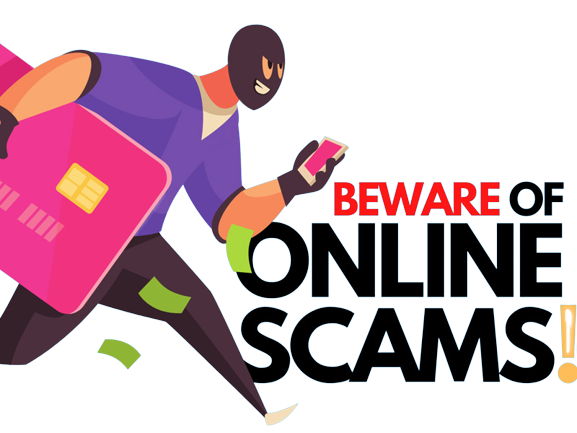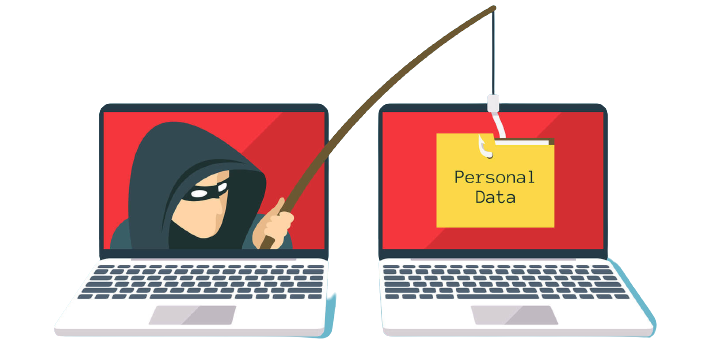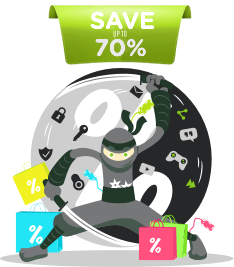 With phishing attacks becoming increasingly sophisticated, it’s important to know how to spot them before you become a victim.
With phishing attacks becoming increasingly sophisticated, it’s important to know how to spot them before you become a victim.
PayPal is one of the most common targets for these kinds of scams and unfortunately, they can be hard to identify if you don’t have the right knowledge. In this blog post, we will discuss some of the telltale signs of PayPal phishing scams in 2023 and how you can protect yourself against them.
We’ll look at some examples of real-world attempts so that you can see exactly what criminals are doing to try and get your information – and then we’ll explain the steps you need to take to stay safe.
How to spot a PayPal phishing scam
When it comes to PayPal phishing scams, there are a few things you can look for to spot them.
First, check the URL of the website you are on. If it is not paypal.com, then it is most likely a phishing scam.
Second, take a look at the spelling and grammar of the website and email. If there are any mistakes, then it is probably a scam.
Finally, be wary of any emails or websites that ask for personal information such as your social security number or credit card number. If you see any of these red flags, then do not enter any information and report the scam to PayPal immediately.
Top PayPal Scams
 PayPal is one of the most widely used online payment platforms in the world, but it’s not immune to scams. Here are a few common PayPal scams to watch out for and how to protect yourself:
PayPal is one of the most widely used online payment platforms in the world, but it’s not immune to scams. Here are a few common PayPal scams to watch out for and how to protect yourself:
- Phishing scams: These scams typically involve an email or text message that appears to be from PayPal, asking you to click on a link or provide personal information. If you receive an email or text message that seems suspicious, don’t click on any links or provide any information. Instead, log into your PayPal account directly by typing the URL into your browser.
- Fake PayPal email: Scammers will send an email that appears to be from PayPal, asking you to confirm your account information or provide personal information. Be sure to check the sender’s email address and look for any typos or grammatical errors. Also, PayPal will never ask you to provide sensitive information like your Social Security number or bank account information via email.
- Unauthorized transactions: If you notice an unauthorized transaction on your PayPal account, notify PayPal immediately. The company will investigate the transaction and may be able to refund your money.
- Suspicious links or attachments: Be careful about clicking on links or opening attachments in emails, even if they appear to be from PayPal. These could contain malware or viruses that can harm your computer or steal your personal information.
- Phishing emails posing as “order confirmation”One of the most well-known PayPal frauds is this one. You will receive an email from the scammer asking you to verify payment for what appears to be a recent order. The con artist will request that you use a link in the message to log into your account. They will have access to your account information and personal data in this way.
- PayPal false invoices The user receives a fake invoice from what appears to be a valid PayPal email address informing them that they owe money. Check your previous purchases and invoices if you receive emails like these that seem dubious, and get in touch with PayPal via official channels to validate the request.
- Fake fraud alert notifications Smishing is a technique that PayPal scammers occasionally use to obtain your information or login information. Be wary of messages that appear to be PayPal fraud alert notifications. It may alert you to unusual activity on your account or notify you of an unauthorized attempt to access your account. Although PayPal does send text messages, you should be on the lookout if you get any unexpected ones. Scammers may access your account if you click the offered link and log in.
- Requests for password resets Never click the link in a message if you receive an unexpected request to change your password. In case your account has been compromised, go into your account using the official PayPal website and update your password.
- Fraudulent PayPal overpayments Cybercriminals target not only common users but also merchants and shops. Typically using a stolen credit card, a con artist overpays for an item and requests the merchant to refund the difference. The fraudster cancels the initial transaction and leaves the seller with nothing once the difference is returned, typically to an account other than the one used to conduct the transaction.
- Fraudulent shipping address Simple things like entering an incorrect mailing address can be used in some PayPal scams. Once the shipping business designates the package as undeliverable, fraudsters send the shipping company their true address after sending the seller a bogus shipping address. Then the fraudster contacts PayPal and cancels the transaction because it was never delivered.
To protect yourself from PayPal scams, always be wary of unsolicited emails or text messages, and never provide personal information unless you initiate the communication and are certain of the identity of the person or organization requesting it. Additionally, be sure to keep your computer and other devices secure with up-to-date anti-virus and anti-malware software.
How to report a PayPal phishing scam
If you think you’ve received a PayPal phishing email, forward it to spoof@paypal.com and then delete it from your inbox. You can also report the phishing scam to the Federal Trade Commission (FTC) at ftc.gov/complaint.
When you forward the email to PayPal, be sure to include any headers that will help PayPal investigate the source of the email. To find these headers in Outlook, open the email and click on File > Properties > Details. In Gmail, click on the down arrow next to Reply and choose Show original.
If you clicked on a link in a PayPal phishing email or gave your personal information to a fake website, change your PayPal password immediately and update your security questions and answers. We also recommend that you change your passwords on any other online accounts where you used the same or similar information as your PayPal account.
How to protect yourself from PayPal phishing scams
 Phishing scams are a common occurrence on the internet, and PayPal is no exception. There are a few things you can do to protect yourself from these kinds of scams.
Phishing scams are a common occurrence on the internet, and PayPal is no exception. There are a few things you can do to protect yourself from these kinds of scams.
First, be aware of the signs that a scammer may be trying to phish your information. These can include unexpected emails or messages purporting to be from PayPal, requests for personal or financial information, or links to fake websites that look similar to PayPal’s legitimate website. If you see any of these red flags, do not respond and report the message or email to PayPal immediately.
Second, keep your computer and software up-to-date with the latest security patches and anti-virus protection. This will help to prevent scammers from being able to access your system and steal your information.
Finally, remember that PayPal will never ask you for your password or other sensitive information via email. If you receive a message asking for this kind of information, do not reply and report it to PayPal right away.
By following these simple tips, you can help to keep yourself safe from PayPal phishing scams.
How VPN protects against PayPal phishing scams
A VPN (Virtual Private Network) protects against PayPal scams by encrypting all of the data that is sent and received over the internet. This means that any sensitive information, such as login credentials or financial data, is protected from being intercepted by cybercriminals.
Additionally, a VPN can also hide a user’s IP address, making it more difficult for scammers to track their location and potentially target them with phishing scams. By using a VPN, PayPal users can have peace of mind knowing that their online transactions are secure and protected.
Best VPN to Protect from Scammers
HideIPVPN offers a VPN service with military-grade encryption, and high-speed servers with unlimited bandwidth.
Our service comes with shared IP addresses so that your activity can never be tied to one particular user, further protecting your privacy.

We also offer DNS leak protection, a Kill Switch, the latest VPN protocols, and a guaranteed no-log policy.
Best VPN Deal! Get HideIPVPN for $2.7/mo!
Every purchase you make comes with a 30-day money-back guarantee.
Conclusion
By following the steps outlined above, you should be able to easily identify PayPal phishing scams in 2023.
It’s important to remember that no matter how sophisticated these scams become, they all share some tell-tale signs that can help us distinguish them from legitimate emails.
By keeping an eye out for suspicious links and requests for personal information, we can protect ourselves and our finances from becoming victims of these malicious schemes.



